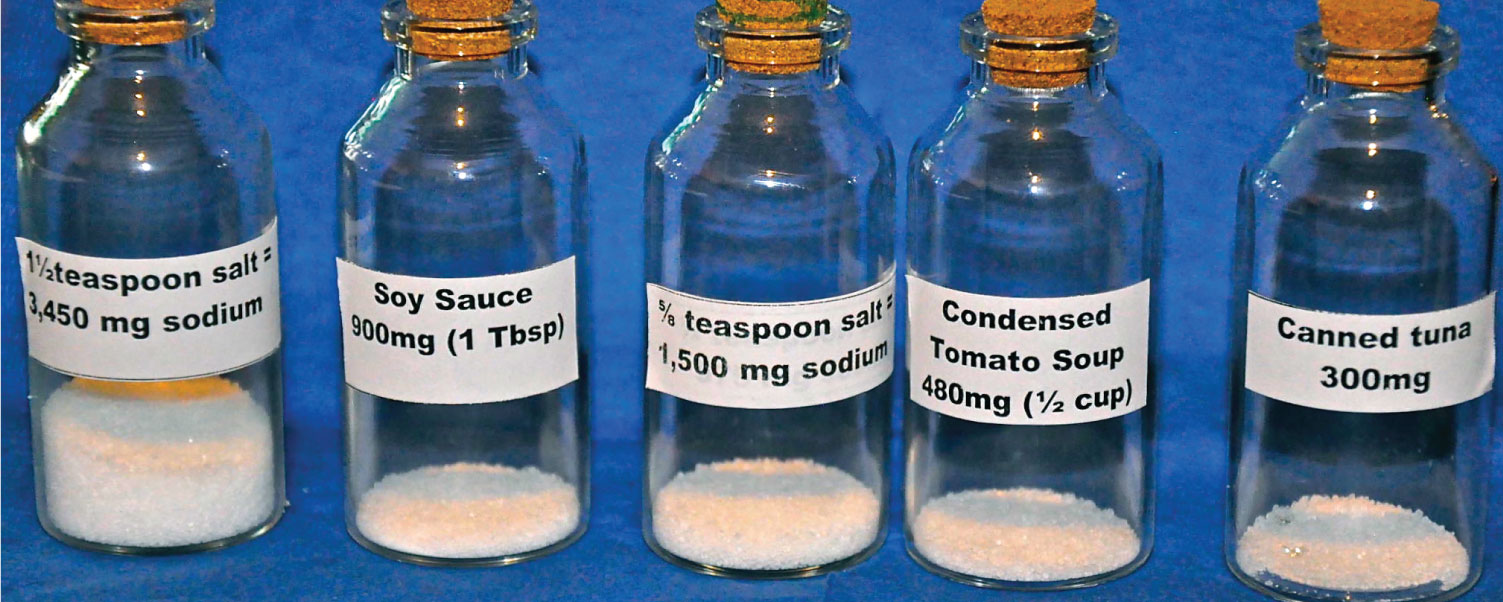Canadians eat about 3400 mg of sodium each day. This is more than double the amount we need. Sodium is an essential nutrient found in salt and many foods.
There are over two million Canadians living with kidney disease. In the Ottawa area, approximately 1000 people suffering with kidney disease are dependent on regular dialysis, hoping and waiting for a kidney transplant.
A kidney-friendly diet is one in which protein, potassium, phosphorus, and sodium levels are controlled. The body needs protein for muscle growth and tissue repair, however, people with kidney disease cannot process the waste created when the body uses protein.
In order to limit waste build up, a kidney diet may control the amount of protein consumed. Phosphorus may also need to be controlled to avoid losing calcium and weakening the bones, and sodium needs to be controlled to avoid high blood pressure.
A kidney diet usually is higher in fats and carbohydrates than a normal diet to make up for not getting as many calories from protein.
Because of these requirements, socializing, working or eating anywhere out of the controlled environment of their home, is a daily challenge for a person with kidney disease. Serious complications of kidney disease can end in total kidney failure.

Use the links below to read about the effect of salt on our bodies and tips to help you reduce your daily intake.
Fact Sheet and Call to Action on Dietary Sodium
The Kidney Foundation of Canada – Nutrition
High Blood Pressure and Your Kidneys
Dietary Sodium Reduction in Canada
Facing the Facts About Kidney Disease
Facing the Facts About Organ Donation
UNSALTED: The Salt-Free Canada Cookbook
Salt-Free Options at Baccanalle Restaurant